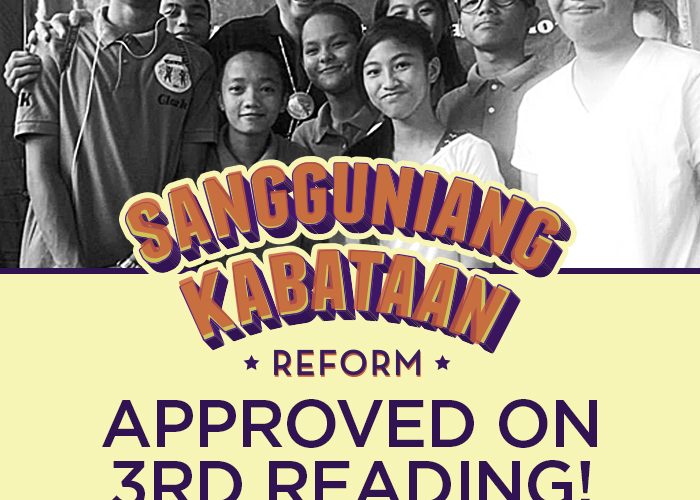Bam urges Lower House to Retain Major Reforms in SK
Senator Bam Aquino hopes that the Lower House will retain the major reforms in the Sangguniang Kabataan (SK) reform bill, which was passed by the Senate on third and final reading Monday.
“We look forward to the enactment of the bill in March. I hope that major reforms that we are pushing will be consistent with Congress’ version,” said Aquino, chairman of the Senate Committee on Youth.
Via 20-0 affirmative vote, the Senate has passed on third and final reading the Senate Bill No. 2401 or the Youth Development and Empowerment Act of 2014.
Senator Bam’s “Liga ng Bayaning Kabataan (LBK)” bill was among several bills consolidated under Senate Bill No. 2401.
Among the major reforms approved by the Senate is the anti-dynasty provision prohibiting family and relatives of any public official – from national, provincial, city/municipality and barangay levels, including appointed ones — up to second degree of affinity or consanguinity from seeking any SK position.
The measure also expands the SK age range to 18 to 24 years old to make them more accountable for their actions.
In addition, SK officials are also mandated to undergo training programs before they assume their posts, equipping them with necessary skills in governance and leadership which will be useful in their position.
The measure also pushes for the creation of the Local Youth Development Council (LYDC), a council that will support the SK and ensure the participation of more young people through student councils, faith-based organizations, youth-serving groups and other community-based youth organizations.

Recent Comments